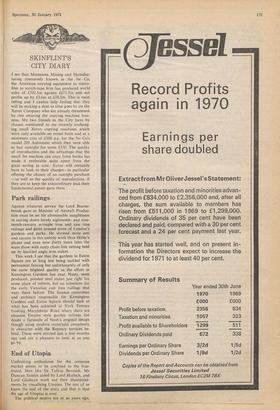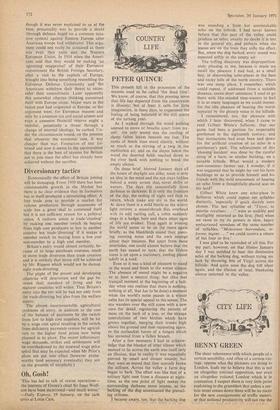End of Utopia
Unthinking enthusiasm for the common market seems to be confined to the frus- trated. Men like Sir Tufton Beamish, Mr Duncan Sandys aided by Lord Harlech, and Lord Gladwyn work out their disappoint- ments by visualising Utopias. The rest of us know the end of the story and that is that the age of Utopias is over.
• The political motive ten or so years ago, though it was never explained to us at the time, presumably was to provide a shield (through defence based on a common taxa- tion system) against Eastern Europe after American troops had withdrawn. This argu-
ment could not really be sustained as there was even then NATO and the Western European Union. In 1954 when the Ameri- cans said that they would be making 'an agonising reappraisal' of their European commitment the British Foreign Secretary, after a visit to the capitals of Europe; brought into being something resembling the European Defence Community and the Americans withdrew their threat to recon- sider their commitment. Later apparently this somewhat obscure thinking concerned itself with Europe alone. Major wars in the recent past had originated in Europe, so the argument went, for European reasons and only by a common tax and social system and even a common financial reserve might a member, potentially a threat through a change of internal ideology, be curbed. Un- der the circumstances sound, on the premise that whatever the economic cost, it was cheaper than war. Formation of EEC fol- lowed and now it seems to the uncommitted that there is the best of reasons for Britain not to join since the effect has already been achieved without the sacrifice.


































 Previous page
Previous page